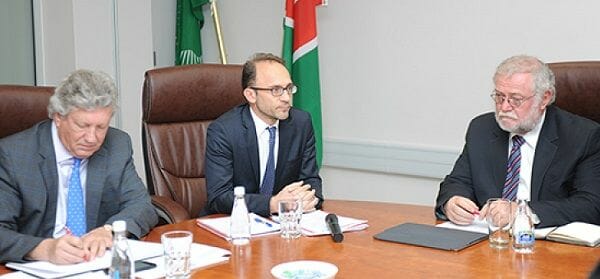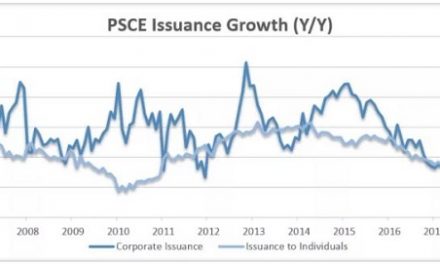
Do we need the IMF to tell us productivity sucks?

There is absolutely no intention on the government’s radar to reduce the civil service. That much was clear at the Ministry of Finance’s last press conference of the year to report on the End of Mission of the Article IV Consultations with the IMF team.
This meeting will probably go down in the annals as the non-event of the year. While a fairly large press crowd gathered before the start of the conference, there was not much urgency on the part of the ministry. It seemed more important to make sure every dignitary, and there were many, had a proper seat close to the minister before the formalities started.
First it was the minister’s turn to tell us things he must have said at least ten times this year. Nowhere any mention of what impact the Article IV Consultations will have on policy. Nowhere any signal that the underlying fundamental imbalances in the economy will finally be addressed.
Even the fact that he stated publicly that the tax payer has to pay more to get less as far as the civil service goes, did not cause even the slightest ripple. It was all so matter of fact. Just blah blah blah, same old, same old.
It was most revealing that the IMF people had to tell us that the government’s wage bill will not come down, it will only decrease as a percentage of Gross Domestic Product. Now that is certainly a revelation if ever there were one. Unfortunately, this floated over the audience without any sign of comprehending the deeper significance of what was said. It clearly spelled out that the government has no intention of reducing the civil service, only to grow GDP. That was the curved ball in the session. Now they only need to tell us: This is how we are going to do it.
At least there was some meaningful discussion around the Southern African Customs Union transfers for 2018 with the minister mentioning that he visited South Africa a week ago for the latest round of meetings. He brought back a disbursement figure for 2018 which is cosmetically smaller than the allocation for this year. At least, we were told that after 2019 SACU transfers are expected to decrease. Again, the core issues of how we will reduce our one-third-fiscus dependency on this income, were not discussed.
It was somewhat amusing to learn from the IMF that this year’s consultations included a second leg where the banking sector was reviewed. Singing the praises of our very sophisticated, advanced banking system, we were informed that the banks have been stress-tested. I nearly choked in my spit.
How does one stress test a Namibian bank when most of the models have been developed for American and European banks? And how does one stress test the financial services industry when the commercial banks’ lone books carry around 44% in mortgage lending. This is unprecedented anywhere in the world so I can not imagine how one bends First World modelling to make it applicable to Namibian banks.
American stress test models are highly selective in their criteria which is also the main reason why they have universally been ridiculed by American analysts. To a lesser extent, European stress tests are equally flawed because they only tested liquidity where capital adequacy was insufficient.
Then the IMF told us we need to jack up our cyber security in the financial services sector. Wow, another revelation as if the banks are not painfully aware that they are under attack every single day.
Leaving the press conference, my first consideration was why the ministry bothered to arrange this meeting. I can not find a single fact or analysis that can not be done by Namibian analysts. We really do not need the IMF to tell us what is happening in the economy, and I say that against a background of weak statistics, lack of capacity, and all the other things that, in the end, characterise us as a third world country with a third world economy.
Digging up last year’s Article IV Country Report, I noticed that exactly the same concerns raised last year, are still on the table. The analysis and the ratios used last year, are still the same. The only difference is that this year’s final report will be delayed by about two months. Last year the consultations took place in September and the report was released on 08 December 2016.
Given that the IMF went to great lengths to explain to the media that the consultations do not grade, or rank, or express a normative consideration of our economy, I was wondering exactly what is it they are doing here. They do not bring any special expertise, they do not dig up startling information of which we are blissfully unaware, they do not provide policy input. Then why do we need them?
Perhaps it is merely a matter of authority. The government does not take local analysts serious. Only two ministers at most realise in what deep trouble we are, and how long it will take to fully get over the aftershocks of 2016. Still too many people in senior government positions believe the gravy train could just keep on running. More money could always be borrowed from some other source.
But the moment these concerns are raised by competent Namibians, it becomes political. So perhaps that is the only value the IMF brings to the table, some forms of external authority for the finance minister to use to try and hammer it into his colleagues’ heads in what dire straits the economy finds itself.
If anyone doubts my acerbic take on the IMF’s value, come sit in at the next meeting, and decide for yourself how much is fluff and how much has substance.
I believe our main concern at this point, must not be too much austerity, only required austerity so that we can focus on growth. If GDP outperforms the rather modest projections of last month’s midyear budget review, then a lot of the problems solve themselves. If not, then the Minister will certainly have to pull a white bunny from a black top hat.










































